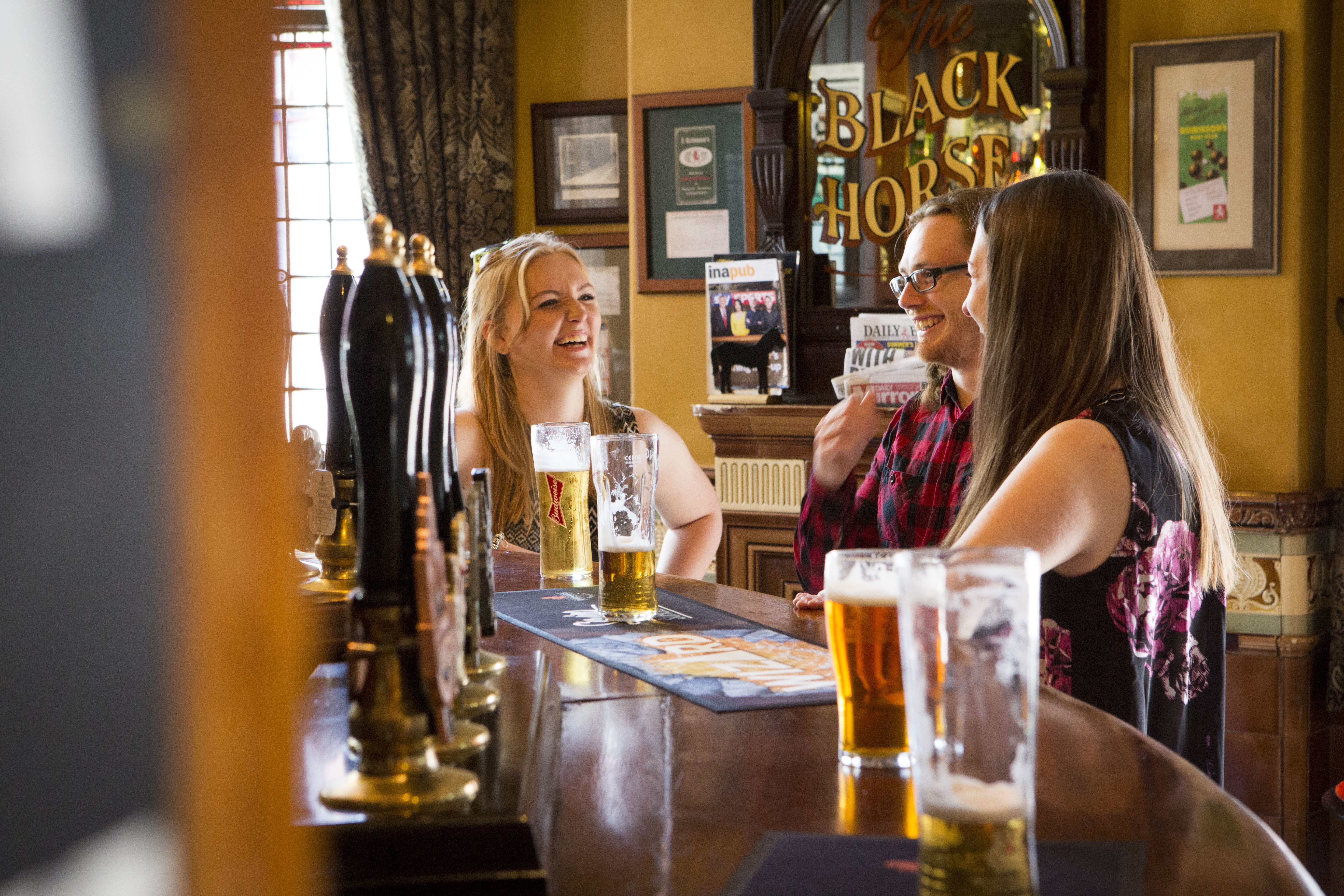
Health Benefits Of Cask Beer

Moderate Consumption May Benefit Health
According to the Brewers of Europe Report (3rd edition), 2004 – beer, when consumed moderately, is not a health risk and may in fact be a net benefit.
There is strong evidence that people who are moderate consumers of alcoholic drinks (beers, wines or spirits) have a substantially reduced risk of coronary heart disease when compared to teetotallers and heavy drinkers. This reduction in risk (associated with approximately 3 alcoholic drinks a day) is on a par with other preventive measures such as the use of aspirin, weight control and exercise.
There are several well-established explanations for this observed reduction in risk of coronary heart disease including the following:
Blood Cholesterol levels
The mechanism which has been shown to be responsible for the majority of the effect, is that the amount of ‘good fat’, (HDL cholesterol), in the blood increases when alcohol is consumed. Higher levels of ‘good fat’ have been shown to be associated with lower risk of coronary heart disease. Research has shown that one glass of beer a day can significantly increase HDL cholesterol levels.
Clotting
Scientists have also shown that alcohol has a beneficial blood thinning effect and reduces the tendency of blood to form clots.
Inflammation
Some researchers have suggested that alcohol may also have an anti-inflammatory effect and there is increasing evidence that atherosclerosis, which leads to heart attacks, is an inflammatory disease. Several recent studies have shown that moderate alcohol consumption, including moderate beer consumption, caused a significant decrease in inflammation.
Insulin resistance
Moderate alcohol consumption may be associated with lower levels of insulin resistance. Insulin resistance is linked to cardiovascular disease, so this may be an additional mechanism by which alcohol consumption reduces risk of cardiovascular disease. Insulin resistance is also associated with diabetes mellitus.
There is also evidence that light to moderate drinking may be protective against other cardiovascular diseases including the most common form of stroke and it has also been shown to be associated with a slight decrease in cardiovascular and total mortality in people who have already had a heart attack.
Research has shown that moderate ale consumption may also protect against many other conditions including diabetes, osteoporosis, dementia, Parkinson’s disease and gallstones. The psychotherapeutic benefit brought on by the relaxation state one feels after a couple of drinks is also a potential health benefit.
Beer is packed with many of the nutrients the body needs for a healthy diet. Unlike other alcoholic drinks it is full of vitamins and minerals. Beer has a water content of 93 per cent. In general, lower strength drinks such as ale, have been shown to be absorbed more slowly from the stomach leading to lower blood alcohol concentrations. While moderate consumption of beer can provide many essential vitamins and minerals, it is important to remember that no single source can provide the full range of elements essential for life, so beer must always be consumed in moderation as part of a balanced diet.
A litre of beer will supply 10% of your daily protein needs, in comparison, wine has none. It has absolutely no cholesterol or fat and has useful quantities of soluble fibre. It has no more calories than a serving of wine (half a pint contains 110 calories), and a lot less than milk or apple juice. Polyphenols in beer are as effective at scavenging harmful cancer inducing free radicals as those in red wine.
In moderation, beer does not make you fat and its constituents are proven to help make a balanced diet. This message echoes the 1930s campaign with the strapline ‘Beer is good for you’.
Visit the Brewers of Europe website for more information.
.

